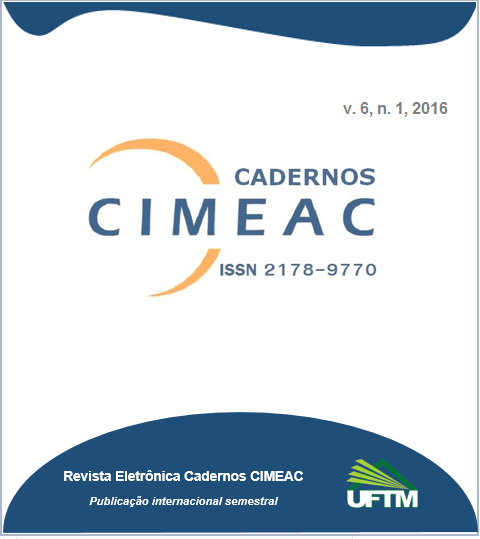Inclusão e emancipação subjetiva, social e cultural de pessoas com deficiência: reflexões à luz das contribuições de Paulo Freire
DOI:
https://doi.org/10.18554/cimeac.v6i1.1687Abstract
O presente artigo se dedica a lançar algumas reflexões sobre o pensamento de Paulo Freire, suas contribuições relativas à importância da educação para o processo de libertação e emancipação dos oprimidos e a relação destes princípios éticos, políticos e educativos no que tange a educação de pessoas com Deficiência. Partimos do princípio de que um sujeito com Deficiência experimentou e ainda experimenta histórias de exclusão, humilhação e opressão e refletimos sobre como as políticas públicas nos diferentes campos não tem conseguido efetivamente garantir seu protagonismo e inclusão social. No campo da Educação, apontamos a garantia deste direito como aspecto fundamental para a tomada de consciência sobre a condição que vivencia no mundo e para a construção de um discurso próprio que possa pautar suas demandas e efetivamente transformar sua realidade. Por fim, propomos uma aproximação entre as ideias de Paulo Freire e Miguel Lopes Melero, pesquisador espanhol que se dedicou a lutar pela desconstrução de preconceitos acerca das pessoas com deficiência e suas potencialidades, elaborando um importante referencial teórico para ampliar a reflexão sobre a construção da autonomia pessoal, social e moral destes sujeitos.
Palavras-chave: Paulo Freire; Emancipação; Deficiência.
ABSTRACT: This article aims at introducing some reflections concerning Paulo Freire's thoughts besides his contributions not only relating to the importance of education based on the process of liberation and emancipation of the opressed but also the relation of etical,political and educative principles regarding the education of the deficient people. First of all, it is of pivotal importance to highligh that when a deficient person lives an exclusion, humiliation and opressive situation the public pulitcs in all over the fileds ,as we concern, are not able to guarantee eficientally the social inclusion. On the education field, we assure the guarantee of this social right as a fundamental aspect to develop the awareness of all the demands of a self-speech, then to transform the reality. Overall, we suggest an approximation between the ideas of Paulo Freire and Miguel Lopes Meleiro, a spanish researcher who devoted oneself to fight for the descontribution of the prejudice over people with deficiency and their potentials, thus perfecting an important teorical referencial to amplify a refletion based on their contraction both personal, social and moral self-government
Keywords: Paulo Freire; Emancipation; Deficiency.
Downloads
Published
Issue
Section
License
Os autores que publicam nesta revista concordam com os seguintes termos:
(a) Não cobramos dos autores para a publicação neste periódico.
(b) Autores mantém os direitos autorais e concedem à revista o direito de primeira publicação, com o trabalho simultaneamente licenciado sob a Licença Creative Commons que permite o compartilhamento do trabalho com reconhecimento da autoria e publicação inicial nesta revista.
(c) Autores têm permissão e são estimulados a difundir e a distribuir a versão publicada de seu trabalho online (ex.: em repositórios institucionais ou na sua página pessoal) após o processo editorial, já que isso pode aumentar o impacto e a citação do trabalho publicado (Veja O Efeito do Acesso Livre).
* * *
AUTHORS COPYRIGHT AND PUBLISHING RIGHTS
Authors who publish with this journal agree to the following terms:
(a) This journal does not charge authors for publication.
(b) Authors retain copyright and grant the journal right of first publication with the work simultaneously licensed under a Creative Commons Attribution License that allows others to share the work with an acknowledgement of the work's authorship and initial publication in this journal.
(c) For authors whose articles have been accepted: authors are permitted and encouraged to post their work online (e.g., in institutional repositories or on their website) after the publication of the text in Cadernos CIMEAC, as it can lead to productive exchanges as well as earlier and greater citation of published work (See The Effect of Open Access).

 10.18554/cimeac
10.18554/cimeac

